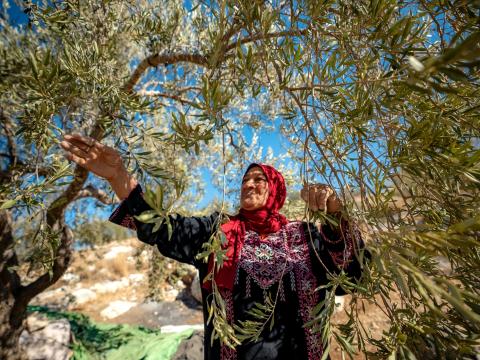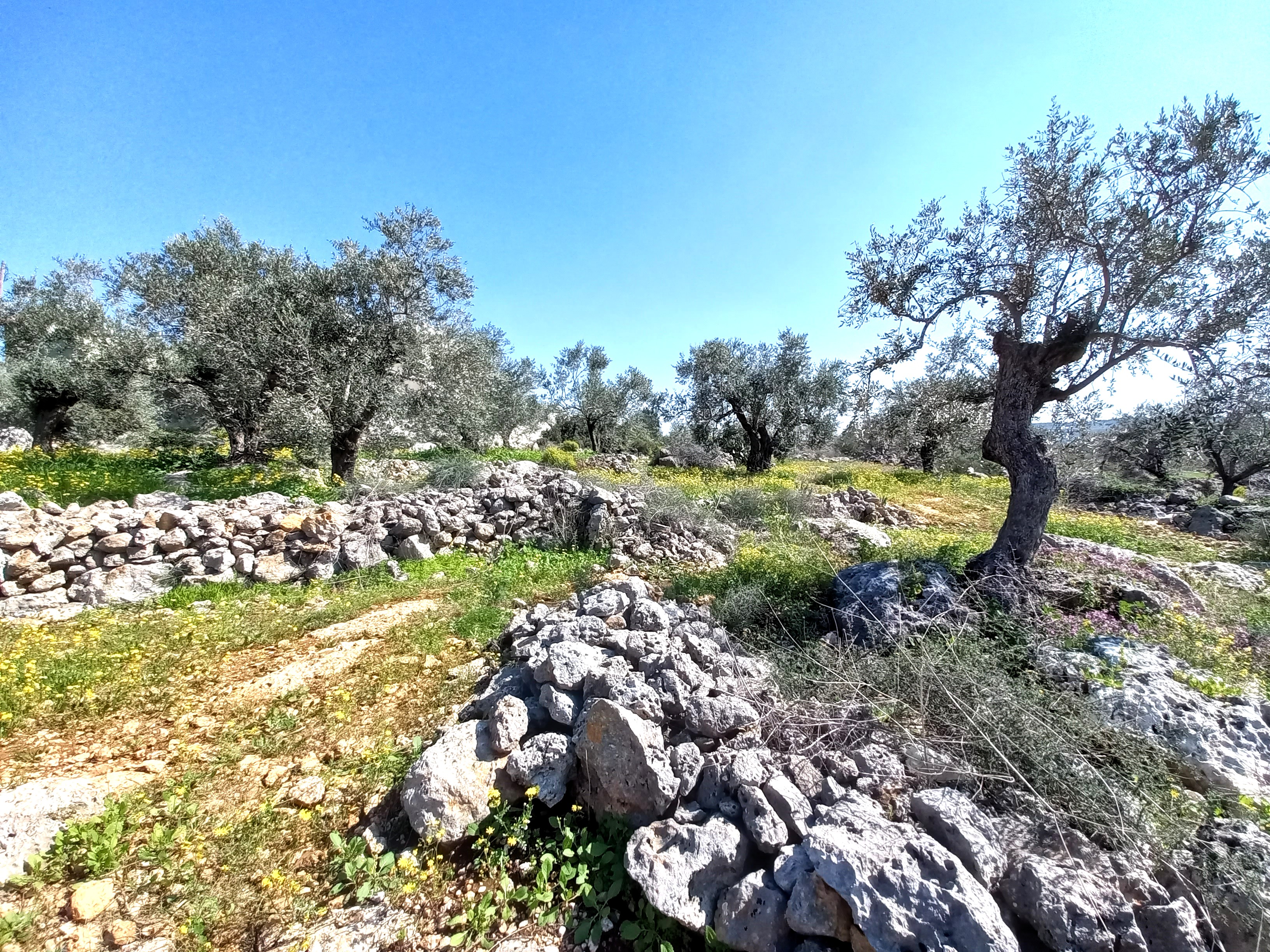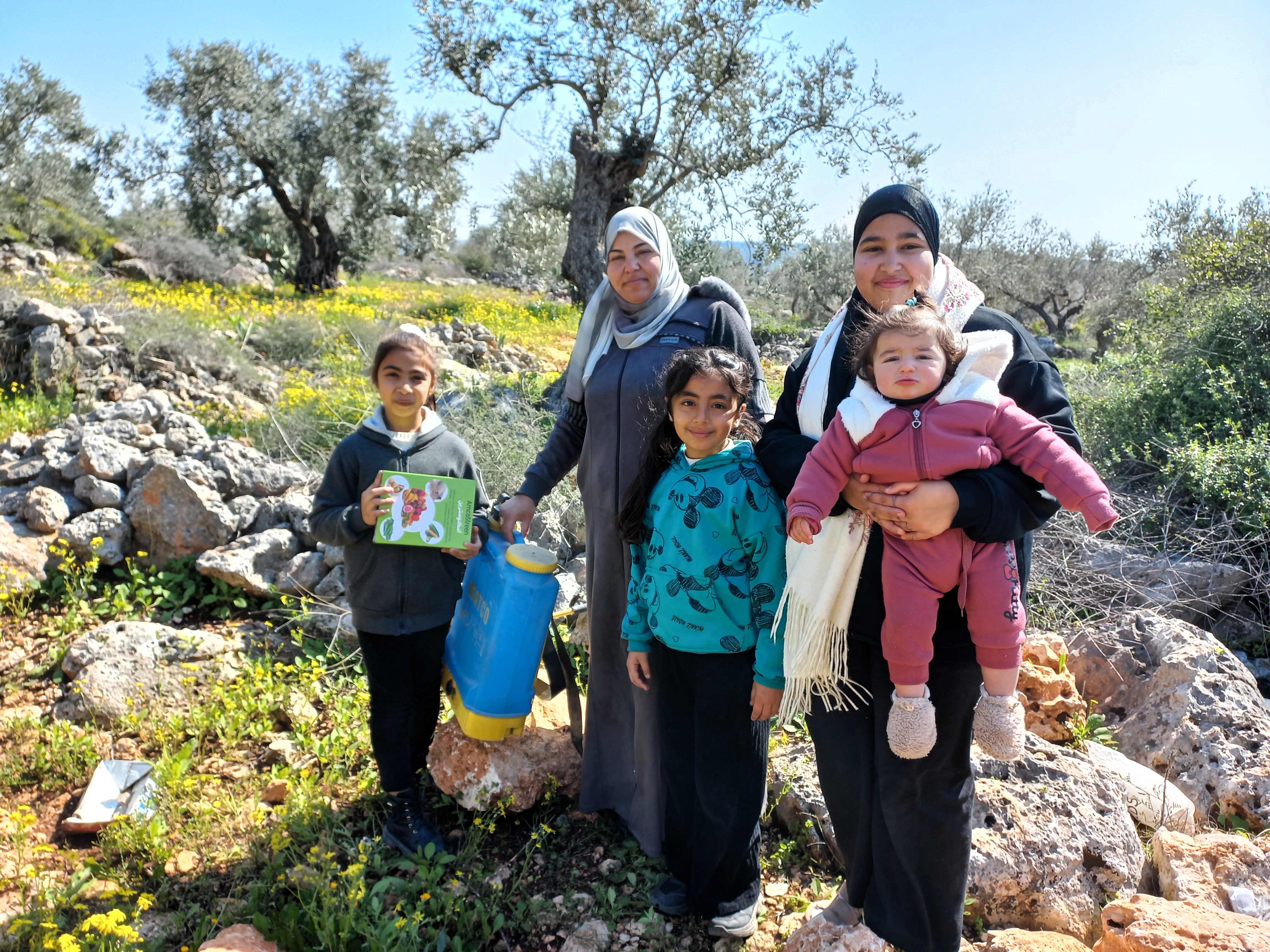Rooted in Resilience: Sherin's Story of Hope and Harvest

“For as long as I can remember, I have worked with my family in agriculture—alongside my grandparents, my parents, and now my own children. This land has always been our livelihood, our pride, and the way we nourish our families. To us, the land is like the air we breathe and the blood that runs through our veins,” says Sherin, a 41-year-old farmer from the north of the West Bank.
“The olive harvest is the heartbeat of our year. It’s not just a season—it’s sacred. It brings families together and fills our homes with hope. Olive oil is the backbone of our lives.”

Like Sherin, between 80,000 and 100,000 Palestinian families in the West Bank—around 15% of the population—rely on the olive harvest to survive. Most are small-scale farmers from vulnerable communities. The sector contributes approximately 25% of Palestinian agricultural income. But for years, that way of life has been under threat. Movement restrictions, administrative barriers, and violence have made access to farmland increasingly difficult and dangerous.
After October 7, 2023, these challenges became even more severe. In October 2024, Sherin and her family were attacked while harvesting their olive trees. “Our harvest, along with our tools, was stolen. Many of our trees were damaged. It was heartbreaking,” she recalls. “Worse than the loss was the uncertainty—we didn’t know how we were going to recover.”
Sherin’s experience was not isolated. Across the West Bank, hundreds of families suffered similar attacks. According to OCHA, in 2023 alone, Palestinian farmers lost over 1,200 metric tons of olive oil, a financial blow of nearly USD 10 million.
But even in the face of loss, hope found a way to grow. With funding from the Disasters Emergency Committee (DEC), World Vision stepped in to provide conditional financial assistance to the most affected farmers—enabling them to purchase new tools and materials to restore their groves and rebuild their lives. In total, 300 farmers were supported, mainly in central areas of the West Bank.
“This support gave us the strength to stand up again,” Sherin says, her voice filled with quiet determination. “It allowed us to return to our land and care for our olive trees once more. It brought joy back into our hearts—and reminded us that we are not alone.”
